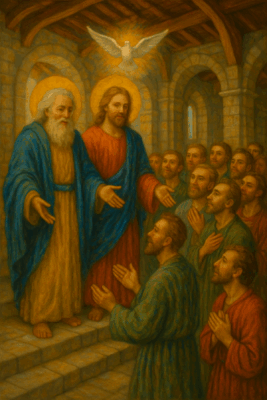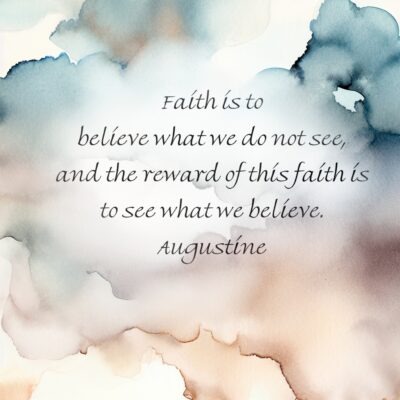
The Trinity in Revelation—Even If the Word Isn’t There
Wait a second. Where did that word Trinity come from? It's not in the beginning of Revelation. Actually, it's not in the middle or the end of it either. In fact, the word isn't in the Bible anywhere. But then, unless you're reading a Hebrew or Greek translation of what ...

Revelation – The seven churches – Who or what are they?
Revelation is such a dramatic book. An apocalyptic vision. The last days of the earth. But there's so much to understand before "viewing" that revelation. Today, we have movies. Maybe previews or social media videos to get us to watch it. But not 2,000 years ago! Revelation was delivered on ...

God responds to our complaint about His response to our question
So far in this series, we've seen Habakkuk ask God a question. God responds. He actually got an answer from God. But then he didn't seem to like the answer. So now what? Will God strike Habakkuk dead? Will He answer yet again? Or will God maybe turn away in ...

What is the book of Revelation in the Bible?
What is the book of Revelation in the Bible? Sounds like a weird question. Everyone knows what it is, don't they? But how many of you have read and really figured out the opening sections: the Prologue and the Greeting? For that matter, how many realize there's no "s" on ...

Why should Trump attack on anti-Christian bias worry Christians?
It should worry everyone!
No, that's not a typo in the title. I am really asking "Why should Trump attack on anti-Christian bias worry Christians?" Of course, he'll go after things non-Christians say. But there's something even worse than that. He will also launch attacks on Christians who actually follow what Jesus taught instead ...

Dare mightier things – even more than Mars Perseverance Rover
I just watched the landing of NASA's Perseverance on BBC. An amazing accomplishment. Katty and Christian were all excited about it. Everyone they interviewed was celebrating and grinning from ear to ear. As I was watching the people in NASA's control room, I couldn't help but notice some words on ...

What is faith? Blind? Circular logic? Or the truth?
The problem with faith - to believe or not to believe
What is faith? In this specific case, what is Christian faith? People have lots of ideas about that. Some think faith is blind. Others may think the reasoning behind Christian faith is circular logic. Others believe Christian faith is the truth ...

Are we the good Samaritan? Or the robber?
We are one or the other
Are we the good Samaritan? Or the robber? We are all one or the other. There’s no saying that we’ve never been in the scenario Jesus painted. Because we’re in. Right now. Every. Single. one. of. us. Everyone! ...

Ways people in church destroy churches from the inside
There was a series on crosswalk.com earlier this year. 10 Ways We May Be Destroying Our Churches. Of course, there are more than ten. So, I borrowed the thought and called my series Ways people in church destroy churches from the inside ...

